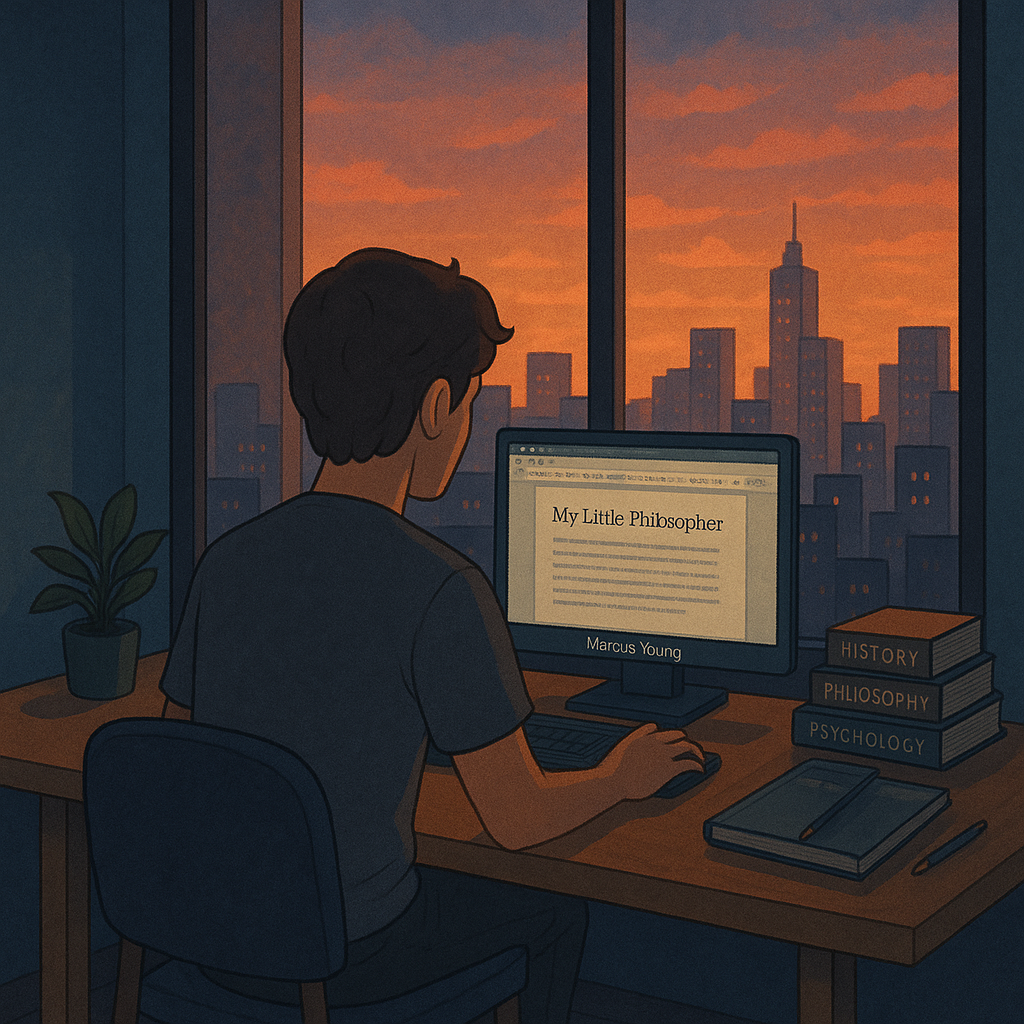The Beginning
Eudaimonia Kids began with a simple observation: children ask the most profound questions. "Why do we dream?" "What happens when we're sad?" "Can flowers feel?"
These aren't just cute moments—they're philosophical inquiries that deserve thoughtful exploration. Yet most children's books offer quick answers or distractions rather than diving deeper into the wonder.
That's when we realized: what if there were books that honored these questions? Books that didn't rush to provide answers, but instead created space for families to explore big ideas together?
Our Mission
At Eudaimonia Kids, we're on a mission to create a safe place for children to think freely, to know it's okay to express themselves in various ways, and to build connection and increase dialogue with their adults—especially for those hard-to-have conversations.
We believe that philosophy isn't just for universities or ancient Greeks. It's for bedtime stories, car rides, and quiet moments of curiosity. It's for every child who's ever wondered "why?" and every parent who's wanted to give more than a simple answer.
What We Believe
Children Are Philosophers
Every "why?" is a doorway to deeper understanding. We provide tools that nurture this innate curiosity, encouraging kids to explore complex ideas in age-appropriate ways.
Connection Through Conversation
The best learning happens in dialogue. Our books and resources are designed to spark meaningful discussions between children and their grown-ups, fostering deeper bonds.
Many Ways to Think
Philosophy isn't just about words. We embrace art, play, and reflection as vital pathways to understanding, helping children express their unique perspectives.
Philosophy for Children (P4C)
A Proven Approach
Our books are grounded in the Philosophy for Children (P4C) movement, an educational approach that has been transforming classrooms worldwide for decades.
P4C isn't about teaching children what philosophers thought—it's about helping them become philosophers themselves. Through carefully crafted stories and guided questioning, children engage in 'communities of inquiry' where they explore complex concepts, develop reasoning skills, and learn to listen respectfully to diverse viewpoints.
- Critical thinking and reasoning skills
- Emotional intelligence and self-awareness
- Respect for diverse perspectives
- Confidence in expressing their ideas
- Joy in intellectual exploration
- Improved communication and listening abilities
Research shows that children who engage with philosophy demonstrate improved academic performance, enhanced social skills, and a greater capacity for reflective thought.
Beyond Books
Library Philosophy Programs
Coming SoonWe're developing after-school programs hosted in libraries, designed to bring philosophical inquiry to life for children and their families.
These research-informed sessions will combine the best of P4C methodology with creative activities, art, and community building. Our aim is to create vibrant spaces where children can explore big ideas, develop emotional literacy, and practice critical thinking in a supportive group setting.
Stay tuned for program launches in select Canadian libraries. We're excited to partner with local communities to make philosophy accessible and engaging for all young learners.
Join Our Journey
Start nurturing your little philosopher today with books that turn questions into adventures.
Explore Our Books